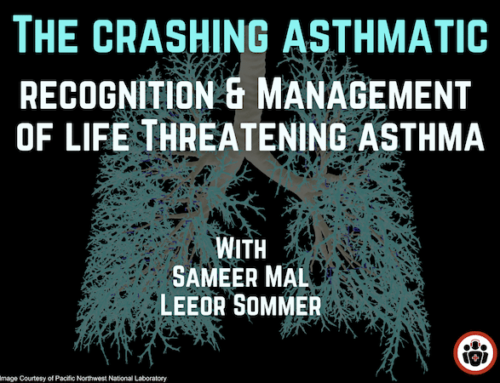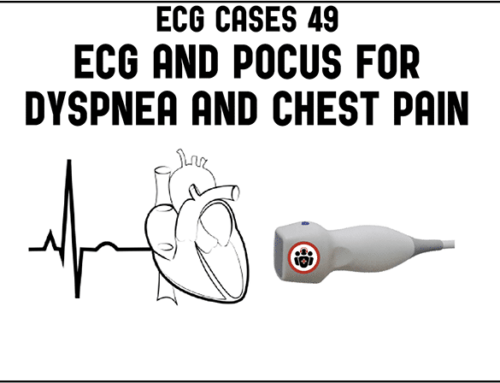In this special 15 minute EM Cases podcast on Ebola preparedness we bring you an interview with Professor Howard Ovens, the director of Emergency Medicine at Mount Sinai Hospital in Toronto. As an EM physician who took care of many SARS patients and the chief of the ED during the SARS outbreak, Dr. Ovens has a very rational approach to how to prepare our emergency departments for patients who present with fever who have been traveling in an Ebola outbreak region, including triaging and personal protective equipment (PPE). Also in this blog post is the Canadian Ebola Clinical Care Guidelines, the CDC Algorithm for Triaging febrile patients after travel from an Ebola endemic country, a video on donning personal protective equipment (PPE), and physician chart templates for suspected Ebola for adult and pediatrics
Written by Anton Helman Oct, 2014
Canadian Ebola Clinical Care Guidelines
EM Cases” href=”https://emergencymedicinecases.com/wp-content/uploads/filebase/pdf/Ebola%20Clinical Care Guidelines 2 Sep 2014.pdf” target=”_blank”>Ebola Clinical Care Guidelines: A guide for Canadian clinicians, 2014
CDC Algorithm for ED Triaging for Ebola
Does the patient have:
- Fever (subjective or Temp >101.5°F) OR
- Compatible symptoms (headache, weakness, muscle pain, vomiting, diarrhea, abdominal pain or unexplained bleeding or bruising)?
If YES:
Has the patient traveled to an Ebola-affected area in the 21 days before illness onset?
*Currently Liberia, Sierra Leone, and Guinea. Note that Nigeria reports localized transmission.
*The incubation period is typically 8-10 days, but can range from 2-21 days.
If YES:
- Isolate the patient in single room with a private bathroom and with the door to hallway closed
- Implement standard, contact, and droplet precautions (gown, facemask, eye protection, and gloves)
- Report to Infection control personnel and the local health department immediately.
History Taking for Fever in Returning Traveler
It is important to realize that the vast majority of ‘fever in returning travelers’ will not be caused by Ebola, but rather, by common colds, pneumonia, UTIs, cellulitis, malaria, typhoid, dengue etc.
Take a comprehensive travel history:
- pre-travel immunizations and malaria prophylaxis
- destination, arrival and departure dates
- accommodation, camping, contact with local populations
- potential exposures (blood/body fluids, street foods, local water, uncooked meat, unpasteurized dairy products, fresh water activities, arthropod bites, animal exposures)
Ebola-specific Physician Chart Templates
These chart templates are a tool for history, physical, work-up and documentation of patients who present to your ED with fever from the Ebola zone.
How to Don Personal Protective Equipment (PPE)
Protocol from Mount Sinai Hospital, Toronto.
Thanks to Dr. Bjug Borgundvaag for production of this video.
Dr. Helman and Dr. Ovens have no conflicts of interest to declare.





Do personal protective equipment have a coating which changes color when in contact with bodily fluids? This benefits practice sessions and actual conditions. Knowing the fluids location alerts one prior to doffing. Too much contamination increases the susceptibility of exposure. A cooling towel may extend comfort and focus. Glenwrick Elliott, RN